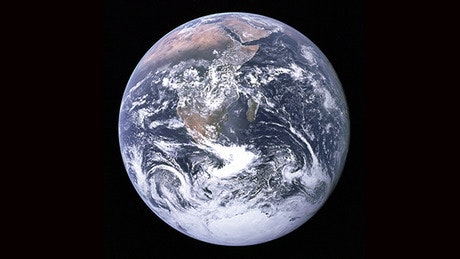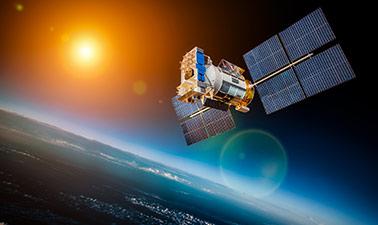Atmospheric Scientist
Atmospheric Scientist: A Comprehensive Career Guide
Atmospheric science is the study of the Earth's atmosphere, its processes, the effects other systems have on the atmosphere, and the effects of the atmosphere on these other systems. It's a broad field encompassing everything from the smallest interactions of gas molecules to the large-scale weather patterns that circle the globe and the long-term shifts in our planet's climate.
Working as an atmospheric scientist can be deeply engaging. You might find yourself developing sophisticated computer models to predict the path of a hurricane, analyzing air quality data to protect public health, or researching ancient ice cores to understand past climates. The field offers a unique blend of theoretical work, data analysis, and sometimes even fieldwork, contributing vital knowledge to society's understanding and response to weather and climate phenomena.
What Do Atmospheric Scientists Do?
Understanding the Day-to-Day
The daily tasks of an atmospheric scientist vary greatly depending on their specific role and specialization. Many spend significant time working with data, analyzing information gathered from weather stations, satellites, radar systems, and weather balloons. This often involves using specialized software and writing computer code (like Python or R) to process, visualize, and interpret vast datasets.
Computer modeling is another cornerstone of the profession. Scientists develop and run complex numerical models to simulate atmospheric processes, forecast weather conditions, project future climate scenarios, or study the transport of pollutants. Fieldwork can also be part of the job for some, involving deploying instruments, collecting samples, or making direct observations, sometimes in remote or challenging environments.
Regardless of the specific tasks, communication is key. Scientists must effectively document their methods, interpret their results, write reports or research papers, and present findings to colleagues, clients, policymakers, or the public. This requires strong analytical and communication skills.
Specializations within the Field
Atmospheric science is not monolithic; it branches into several specialized areas. Perhaps the most well-known is meteorology, which focuses on the study of weather and weather forecasting. Meteorologists analyze current weather conditions and use models to predict future atmospheric behavior on short timescales.
Climatology, on the other hand, deals with long-term weather patterns and climate trends. Climatologists study historical climate data, analyze climate variability, and develop models to understand past climates and project future changes, often focusing on the impacts of human activities.
Other specializations include atmospheric physics and atmospheric chemistry, which delve into the physical processes (like radiation transfer and cloud formation) and chemical reactions (like ozone depletion and air pollution chemistry) occurring in the atmosphere. Air quality science specifically focuses on atmospheric pollutants, their sources, transport, transformation, and impacts on health and the environment.
Where Atmospheric Scientists Work
Atmospheric scientists find employment across various sectors. Government agencies are major employers, including national weather services (like the National Oceanic and Atmospheric Administration - NOAA and its National Weather Service - NWS in the US), environmental protection agencies, and military branches, which require weather forecasting and climate analysis for operations and planning.
Academia is another significant pathway, with roles in universities and research institutions focused on fundamental research, teaching, and advancing the science. These positions often require advanced degrees (Master's or PhD).
The private sector also offers diverse opportunities. Consulting firms hire atmospheric scientists to assess environmental impacts or climate risks for businesses. Industries like energy (especially renewables needing wind/solar forecasts), agriculture (requiring weather and climate information for planning), insurance (assessing weather-related risks), transportation (aviation weather), and media (broadcast meteorology) all employ atmospheric scientists.
Formal Education Pathways
Building the Foundation: Undergraduate Studies
A strong foundation in mathematics and physical sciences is crucial for a career in atmospheric science. Aspiring scientists typically pursue a bachelor's degree in atmospheric science or meteorology. However, degrees in related fields like physics, mathematics, chemistry, engineering, environmental science, or computer science can also provide a suitable entry point, especially if supplemented with relevant coursework.
Core undergraduate courses usually include multiple levels of calculus, differential equations, linear algebra, physics (mechanics, thermodynamics, electricity and magnetism), chemistry, and computer programming. Specific atmospheric science courses cover topics like atmospheric thermodynamics, atmospheric dynamics, synoptic meteorology (analyzing weather maps), mesoscale meteorology (studying smaller weather systems like thunderstorms), physical meteorology (cloud physics, radiation), and methods of observation and analysis.
Developing strong computational and data analysis skills during undergraduate studies is increasingly important across all specializations.
Advancing Knowledge: Graduate Programs
While a bachelor's degree is sufficient for some entry-level positions, particularly in operational forecasting, a Master's degree (M.S.) or Doctorate (Ph.D.) is often required for research positions, university teaching, and more specialized roles in government or the private sector. Graduate programs allow students to delve deeper into specific areas like climate modeling, atmospheric chemistry, cloud physics, or severe weather.
Graduate coursework builds upon the undergraduate foundation with advanced topics in fluid dynamics, radiative transfer, numerical modeling, and statistical methods. A significant component of graduate study is research, culminating in a master's thesis or doctoral dissertation. Choosing a graduate program often involves identifying faculty members whose research aligns with your interests.
These foundational books cover essential principles often encountered in advanced studies.
Academic Careers and Certification
A Ph.D. is typically the standard requirement for pursuing a tenure-track faculty position at a university or a long-term research scientist role at a government or private research lab. The path involves rigorous coursework, original research, publishing in peer-reviewed journals, and often postdoctoral research experience.
Professional certifications can enhance credibility and career prospects, especially for those in operational or consulting roles. The American Meteorological Society (AMS) offers certifications like the Certified Broadcast Meteorologist (CBM) and the Certified Consulting Meteorologist (CCM), which require specific educational backgrounds, experience, and passing an examination.
Online and Self-Directed Learning in Atmospheric Science
Can You Learn Atmospheric Science Online?
The digital age offers unprecedented access to educational resources, and atmospheric science is no exception. While a formal degree remains the primary pathway for becoming a credentialed atmospheric scientist, online learning offers valuable opportunities. It can be an excellent way to explore the field, supplement formal education, gain specific skills, or pivot from a related discipline.
For those considering a career change or just starting, online courses can provide foundational knowledge without the immediate commitment of a full degree program. They allow you to test your aptitude and interest in subjects like meteorology, climate science, and data analysis. However, it's realistic to understand that most research and specialized roles will still necessitate formal university qualifications due to the depth of theoretical knowledge and research experience required.
Think of online learning as a powerful tool for building foundational understanding, acquiring specific technical skills (like programming or data visualization), and staying current with new developments. It complements, rather than entirely replaces, traditional academic pathways for many core roles in the field.
Key Topics for Online Study
If you're using online resources to build a foundation, focus on core concepts. Start with introductory meteorology and climate science to grasp the basic principles governing weather and climate systems. Understanding fundamental physics (thermodynamics, fluid mechanics) and mathematics (calculus, statistics) is also essential, and many online platforms offer courses in these areas.
Given the data-intensive nature of the field, courses in programming (especially Python), data analysis, statistics, and data visualization are highly beneficial. Familiarity with tools used for handling geospatial data, such as Geographic Information Systems (GIS) and remote sensing techniques, is also valuable.
These courses offer introductions to climate science, weather observation, and relevant earth science principles.
These courses delve into sensing technologies and data analysis techniques relevant to the field.
Practical Projects and Integration
Supplementing online coursework with hands-on projects significantly enhances learning. You could start by accessing publicly available weather data (e.g., from NOAA or local sources) and attempting to analyze trends or visualize patterns using programming skills learned online. Trying simple data analysis tasks or even experimenting with introductory GIS software can solidify concepts.
For those already in formal education, online courses can fill knowledge gaps or provide deeper dives into topics not extensively covered in their curriculum. Professionals in adjacent fields like environmental engineering or data science can use targeted online courses to acquire specific atmospheric science knowledge relevant to their work, such as understanding climate model outputs or weather forecasting for renewable energy.
OpenCourser offers tools to help structure your learning. You can browse courses in Climate Science, save potential options to a personalized list using the "Save to list" feature (manageable here), and compare syllabi to build a self-directed learning path that complements your goals.
This course offers hands-on experience with specific analysis tools.
Career Progression and Opportunities
Starting Your Career
Entry-level positions for those with a bachelor's degree often involve supporting roles. This might include working as a meteorological technician, research assistant, data analyst, or junior forecaster. These roles typically involve collecting and processing data, assisting senior scientists with analysis or modeling, maintaining instruments, or providing basic weather briefings under supervision.
Early career roles provide valuable practical experience and exposure to the operational or research environment. They are crucial stepping stones for developing skills and understanding the nuances of the field before potentially pursuing advanced education or more specialized roles.
Mid-Career Advancement
With experience and potentially an advanced degree, atmospheric scientists can progress to more independent and specialized roles. This could involve becoming an operational meteorologist responsible for issuing forecasts and warnings, a research scientist designing and conducting studies, a climate analyst interpreting climate data and model outputs, or an environmental consultant advising clients on weather-related risks or air quality regulations.
Opportunities also exist in policy advising, where scientists help inform government decisions related to climate change, air quality, or disaster preparedness. Others might move into project management or team leadership roles within their organizations.
Leadership and Senior Roles
Senior atmospheric scientists often take on leadership positions. In academia, this could mean becoming a tenured professor leading a research group and mentoring students. In government, senior roles might involve managing research programs, heading operational forecast offices, or advising high-level policymakers.
In the private sector, experienced scientists can become chief meteorologists, lead consultants, heads of research and development departments, or even start their own specialized consulting firms. These roles typically require extensive expertise, a strong track record of accomplishments, and leadership skills.
Salary Expectations and Job Outlook
Salaries for atmospheric scientists vary based on education level, experience, specialization, sector (government, academia, private), and geographic location. Generally, positions requiring advanced degrees and specialized expertise command higher salaries. The private sector, particularly in fields like energy or finance, may offer higher compensation compared to entry-level government or academic positions.
According to the U.S. Bureau of Labor Statistics, employment for atmospheric scientists, including meteorologists, is projected to grow about as fast as the average for all occupations. The BLS Occupational Outlook Handbook provides updated statistics on salary and job growth. Growing awareness of climate change and its impacts, along with the need for improved weather forecasting for various industries (especially renewable energy), is expected to drive demand.
Opportunities are often concentrated in areas with government agencies, research institutions, or specific industries (like energy hubs or agricultural regions). Emerging sectors like climate risk assessment and renewable energy forecasting represent significant growth areas.
These courses touch upon renewable energy resources and climate solutions.
Emerging Trends in Atmospheric Science
Advancements in Climate Change Research
Climate change remains a central focus, driving significant research efforts. Scientists are continually refining climate models to improve projections of future warming, sea-level rise, and changes in extreme weather events. Research also focuses on understanding complex climate feedback loops, the role of aerosols, carbon cycle dynamics, and assessing the impacts of climate change on ecosystems, water resources, and human societies.
There's a growing emphasis on regional climate modeling to provide more detailed local projections and on attribution studies, which aim to determine the extent to which human-caused climate change influenced specific extreme weather events. Understanding adaptation and mitigation strategies is also a major research area.
These comprehensive reports and books delve into the complexities of climate change.
AI and Machine Learning Applications
Artificial intelligence (AI) and machine learning (ML) are revolutionizing atmospheric science. These techniques are increasingly used to analyze massive datasets from satellites and models, identify complex patterns, and improve the accuracy and speed of weather forecasts. ML algorithms are being developed for tasks like "nowcasting" (very short-term prediction of phenomena like thunderstorms), improving sub-seasonal to seasonal forecasts, and post-processing model outputs to reduce biases.
AI is also being applied to climate modeling, potentially helping to parameterize complex processes that are computationally expensive to simulate directly or to analyze vast amounts of climate model output. Expertise in data science and AI/ML is becoming a valuable asset for atmospheric scientists.
Technological Innovations
Advances in observational technology continue to provide richer data streams. New generations of satellites offer higher resolution and more frequent observations of atmospheric variables like temperature, humidity, winds, and precipitation. Improvements in radar technology enhance the detection and analysis of severe weather.
Remote sensing techniques, both satellite-based and ground-based (like lidar), are constantly evolving, providing new ways to measure atmospheric composition, clouds, and aerosols. Furthermore, advancements in high-performance computing allow scientists to run more complex and higher-resolution atmospheric models than ever before, leading to better forecasts and climate projections.
Policy and Funding Landscape
The societal relevance of atmospheric science, particularly concerning climate change and extreme weather, heavily influences research funding and policy priorities. International agreements like the Paris Agreement and national climate policies shape research directions, focusing efforts on mitigation, adaptation, and impact assessment.
Increased frequency and intensity of extreme weather events also drive funding for improved forecasting capabilities and disaster preparedness research. Understanding the policy landscape and being able to communicate scientific findings effectively to policymakers is becoming increasingly important for scientists working in climate and weather-related fields.
This course provides an introduction to mitigation strategies.
Ethical Considerations in Atmospheric Science
Data, Models, and Uncertainty
Atmospheric scientists work with complex systems characterized by inherent uncertainty. Climate models, while sophisticated, are representations of reality and involve assumptions and parameterizations that can introduce biases. Ethically, scientists must be transparent about these uncertainties and limitations when presenting results, avoiding overstating confidence in predictions or projections.
Interpreting data also requires care to avoid confirmation bias or selectively highlighting results that fit a preconceived narrative. Maintaining objectivity and rigor in data analysis and model evaluation is a core ethical responsibility.
Scientific Integrity and External Pressures
Given the high stakes associated with weather forecasting (public safety) and climate change (policy decisions), atmospheric scientists can face pressure from various sources, including political interests, industry groups, or media outlets. Upholding scientific integrity means resisting pressure to alter findings or tailor communication to fit specific agendas.
This involves adhering to rigorous scientific methods, ensuring reproducibility, being open about funding sources, and engaging in peer review processes. Maintaining independence and objectivity is crucial for public trust in the science.
Global Equity and Climate Justice
Climate change disproportionately affects vulnerable populations and developing nations, raising significant ethical questions about global equity and climate justice. Atmospheric scientists contribute crucial information about the causes and impacts of climate change, and their work informs discussions about responsibility for emissions, adaptation funding, and loss and damage.
While the primary role is scientific analysis, an awareness of these equity dimensions is important. Research priorities and the communication of findings can consider the differential impacts of climate change across regions and socioeconomic groups.
Responsibility in Public Communication
Atmospheric scientists often communicate complex and potentially alarming information about severe weather or climate change impacts. Ethical communication involves conveying information accurately, clearly, and without unnecessary jargon or alarmism. It also means being clear about what is known, what is uncertain, and the basis for scientific conclusions.
Engaging respectfully with public concerns and skepticism, correcting misinformation, and contributing to informed public discourse are important aspects of this responsibility. Transparency about methods and data helps build trust.
These books explore the gravity of climate change and the importance of clear communication.
Global Opportunities and Challenges
International Demand and Collaboration
Atmospheric science is inherently global, as weather and climate systems know no borders. There is international demand for skilled atmospheric scientists in national meteorological services, research institutions, and climate-focused organizations worldwide. Countries heavily investing in climate research, renewable energy, or facing significant weather-related hazards often have strong demand.
International collaboration is fundamental to progress in the field. Large-scale initiatives like the World Meteorological Organization (WMO) and the Intergovernmental Panel on Climate Change (IPCC) rely on cooperation among scientists from many nations. Collaborative research projects, data sharing agreements, and international field campaigns are common.
These IPCC reports exemplify global scientific collaboration.
Data Standardization and Access
While collaboration is strong, challenges remain. Ensuring consistent data quality and standardization across different national observing networks can be difficult. Access to data, particularly high-resolution model outputs or specialized observations, can sometimes be restricted due to cost, infrastructure limitations, or national policies.
Efforts are ongoing through international organizations to promote open data policies and improve data sharing infrastructure, recognizing that global challenges require globally accessible information. Bridging the gap in observational capabilities between developed and developing nations is also an ongoing challenge.
Working Internationally
For those interested in working abroad, opportunities exist in international organizations, foreign government agencies, universities, or multinational corporations. However, pursuing these opportunities typically involves navigating visa requirements, work permit regulations, and potentially language barriers.
Networking through international conferences, research collaborations, or professional societies can be helpful for identifying global opportunities. Many graduate programs also have an international student body and connections, providing potential pathways for global careers.
Frequently Asked Questions (Career Focus)
Can I become an atmospheric scientist without a PhD?
Yes, absolutely. A bachelor's degree in atmospheric science or a related field is often sufficient for many entry-level positions, particularly in operational weather forecasting or as a technician. A Master's degree can open doors to more specialized roles and some research positions. A PhD is typically required for independent research leadership roles and university faculty positions.
How competitive are government vs. private sector roles?
Both sectors can be competitive, requiring strong academic qualifications and relevant skills. Government positions (e.g., at NOAA/NWS) often have structured application processes and may attract many applicants due to job stability and mission focus. Private sector roles (e.g., in energy, consulting, insurance) can also be highly competitive, often seeking specialized skills or experience relevant to their industry needs. Competition levels vary depending on the specific role, location, and specialization.
What industries hire atmospheric scientists beyond meteorology?
Beyond traditional weather forecasting, atmospheric scientists work in diverse industries. The energy sector (especially renewables like wind and solar) needs forecasts for resource assessment and grid management. Agriculture relies on weather and climate information for crop planning and risk management. The insurance and finance industries assess weather and climate risks. Environmental consulting firms advise on air quality and climate impacts. Transportation (aviation, shipping) requires specialized weather support. Research and development in various tech sectors also employ atmospheric scientists.
Is fieldwork mandatory in this career?
No, fieldwork is not mandatory for all atmospheric scientists. Many roles, particularly those focused on computer modeling, data analysis, operational forecasting from an office, or theoretical research, involve little to no fieldwork. However, other specializations, such as those involving instrument deployment, observational campaigns, or certain types of environmental monitoring, may require significant time in the field, sometimes in remote or challenging conditions.
How does climate change impact job prospects?
Climate change is significantly increasing the demand for atmospheric scientists. There is a growing need for experts who can model future climate scenarios, assess impacts on various sectors, develop adaptation strategies, and work on mitigation solutions. Opportunities are expanding in climate risk assessment for businesses, renewable energy forecasting, environmental consulting, policy advising, and research focused on understanding and addressing climate change.
What soft skills are most valuable?
Beyond technical expertise, strong soft skills are crucial. Excellent communication skills (both written and verbal) are needed to explain complex topics clearly to diverse audiences. Critical thinking and problem-solving skills are essential for analyzing data and tackling research questions. Collaboration and teamwork are important, as projects often involve interdisciplinary teams. Attention to detail, strong analytical abilities, and adaptability are also highly valued.
Useful Resources
For those exploring a career in atmospheric science, several organizations and resources can provide valuable information:
- American Meteorological Society (AMS): A leading professional organization offering resources, publications, certifications, and job listings. (www.ametsoc.org)
- National Oceanic and Atmospheric Administration (NOAA): The primary US agency for weather and climate science, offering career information and data resources. (www.noaa.gov/careers)
- National Weather Service (NWS): Part of NOAA, the main source for US weather forecasts and warnings. (www.weather.gov/careers/)
- University Corporation for Atmospheric Research (UCAR): A consortium of universities focused on atmospheric research and education. (ucar.edu/opportunities/careers)
- OpenCourser: Explore relevant courses and topics through curated browse pages:
Embarking on a career as an atmospheric scientist requires a strong commitment to learning complex scientific principles and developing robust analytical skills. It's a field driven by curiosity about the natural world and a desire to understand the intricate processes governing our planet's weather and climate. Whether you are drawn to the challenge of predicting severe storms, modeling long-term climate change, or ensuring cleaner air, atmospheric science offers intellectually stimulating and societally relevant career paths. If the prospect of applying physics, chemistry, math, and computer science to understand the atmosphere excites you, this challenging but rewarding field may be an excellent fit.















